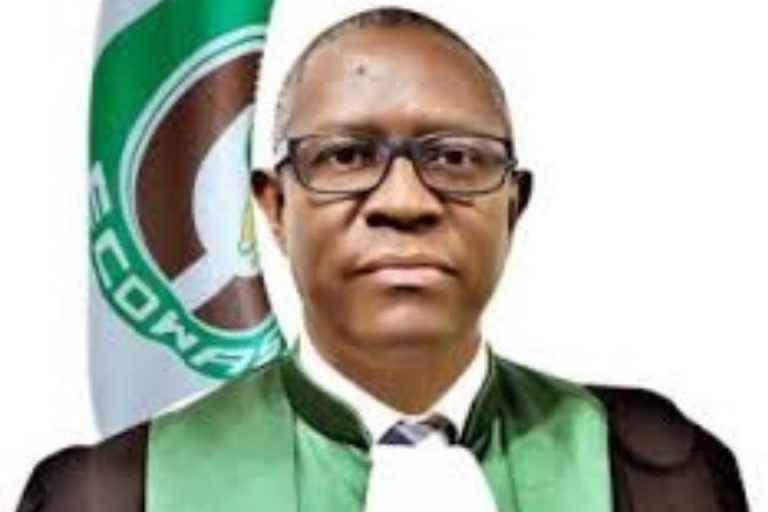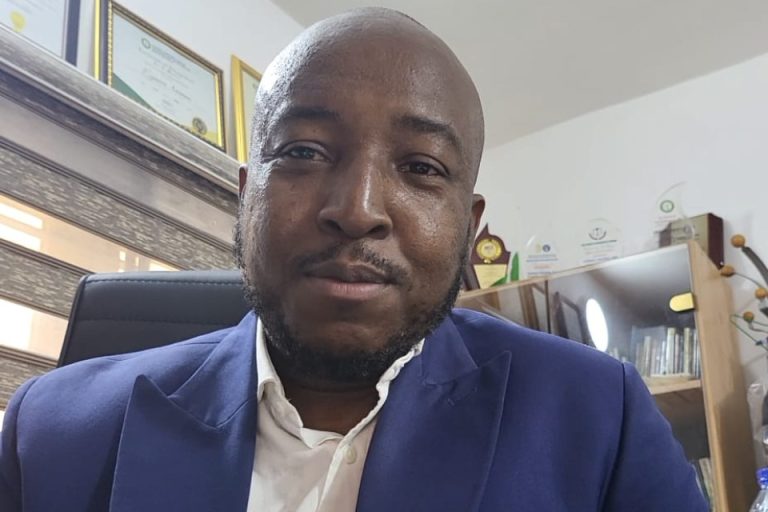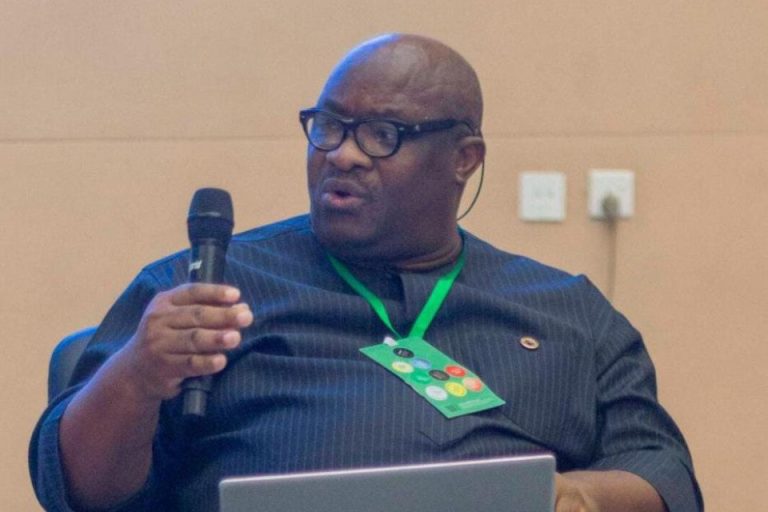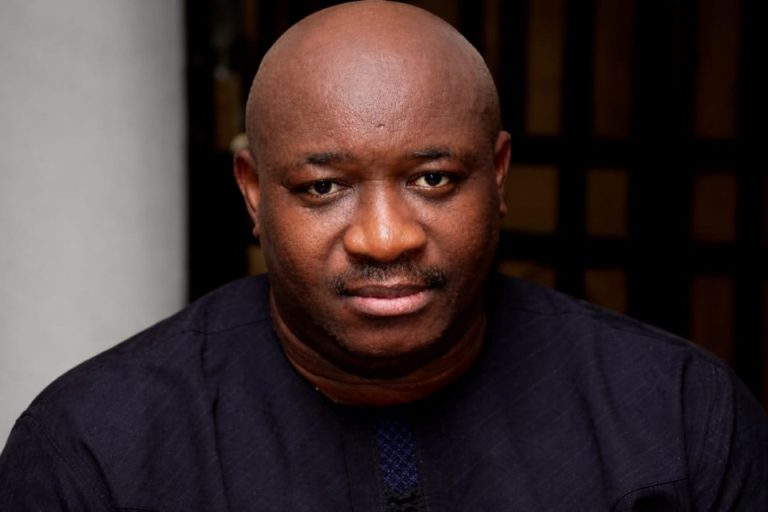Violations of the right to freedom of expression affect the society as a whole, and when individuals in the society cannot express themselves freely, either for fear of imprisonment or fear of death, then everyone in the society becomes a victim, according to the ECOWAS Community Court of Justice.
The Court stated this in its unanimous judgment in a suit filed by a human rights organisation, Expression Now Human Rights Initiative, in which the Court ordered the Federal Government of Nigeria to ensure the repeal or amendment of blasphemy provisions in the Kano State Penal Code, its Sharia Penal Code Law of 2000, and other similar provisions in its laws as they are incompatible with Nigeria’s obligations to guarantee freedom of expression under the African Charter on Human and Peoples’ Rights as well as the International Covenant on Civil and Political Rights (ICCPR).
Lagos-based human rights lawyer, Mr. Solomon Okedara, filed the suit on October 6, 2023, on behalf of the human rights organisation which claimed that Nigeria’s use of blasphemy provisions in its criminal laws to arrest, detain, imprison, and impose death sentences on its citizens, as well as its failure to prevent extra-judicial killings by mobs, of persons alleged to have committed blasphemy, are a violation of the rights to freedom of religion, freedom of expression, and life under the provisions of the ACHPR, the ICCPR, and the United Nations Convention against Torture and other forms of Cruel, Inhuman or Degrading Treatment (UNCAT), as well as other international human rights instruments binding on Nigeria.
The organisation alleged that at different times within Nigerian territory, citizens have been subjected to arbitrary arrest and detention, summary prosecution and imposition of jail terms or death sentences for the offence of blasphemy, and that in addition to this, several citizens have been subjected to torturous and gruesome extra-judicial killing on the ground of blasphemy without the killers being made to face the consequences of their crimes.
The organisation cited as examples three persons who have faced criminal prosecution for the offence of blasphemy. It named Yahaya Shariff Aminu, who was tried before an Upper Sharia Court in Kano State for blasphemy pursuant to the provisions of Section 382 (b) of Kano State Sharia Penal Code Law for making statements on a WhatsApp platform, that were considered blasphemous against Prophet Mohammed, and was convicted on August 10, 2020 and sentenced to death by hanging.
It also identified another person as Muhammad Mubarak Bala, an indigene of Kano State and self-identified atheist, who renounced his Islamic faith in 2014, and had in March 2020 posted some messages on his Facebook page that were considered to be blasphemous to Islamic faith and capable of occasioning breach of public peace. Based on a petition against him by a group of lawyers because of the Facebook post, he was arrested in his home in Kaduna State on April 28, 2020, and moved to Kano State where he was detained and prosecuted, convicted under Sections 114 and 210 of the Penal Code Law of Kano State and sentenced to 24 years imprisonment.
The organisation also named Rhoda Jatau, a Christian woman, who was arrested on May 20, 2020, in Bauchi State and was alleged to have shared a message in her work WhatsApp group, condemning the killing of Deborah Yakubu Samuel, who was gruesomely murdered in a College in Sokoto State for alleged blasphemy. Jatau was charged with “inciting public disturbance, exciting contempt of religious creed, and cyberstalking under Sections 114 and 210 of the Penal Code Law, as well as Section 24(1)(b)(i) of the Cybercrime (Prohibition, Prevention, Etc) Act, 2015 and was refused bail by the court on several occasions, on the ground of public safety concerns, but was denied an accelerated trial by the court and remained in prison custody at the time of the suit.
It also cited instances of persons who were allegedly killed extra-judicially having been accused of blasphemy, including Eunice Olawale, a Christian preacher who was murdered by fanatics on July 9, 2016, while preaching outdoors in her neighbourhood in the Kubwa area of Abuja for which no one has been brought to justice for her murder; Deborah Yakubu Samuel, a young Christian student of the Shehu Shagari College of Education in Sokoto, who was murdered by a mob on May 12, 2022, based on allegations that she had posted statements blasphemous to Islam on a class WhatsApp platform; and Mrs. Bridget Agbahime, a trader in Kano, who was also murdered by a mob in the market where she traded on June 2, 2015, after she had stopped a Muslim man from performing ablution in front of her shop.
The organisation also claimed that on June 4, 2016, the Governor of Kano State announced the arrest of five suspects allegedly involved in the murder of Mrs. Agbahime and that on June 10, 2016, those suspects were arraigned before a Chief Magistrate’s court in Kano for incitement, culpable homicide and mischief, based on sections 144, 80, 51 and 327 of the State’s Penal Code. Shortly after the arraignment, the Police transferred the case to the office of the Attorney General of the State for advice and on November 3, 2016, the Attorney General of the State withdrew the case asking the court to discharge the suspects because there was “no case to answer as the suspects are all innocent.” All the suspects were discharged accordingly.
It said Usman Buda, a Sokoto-based butcher, was on June 25, 2023, stoned to death on the allegation that he blasphemed Prophet Muhammad and that to date, no one has been prosecuted for his murder.
The organization alleged that the murders are only some of the instances of extra judicial killings where the Federal Government of Nigeria failed to prevent violations of the right to freedom of religion, right to freedom of expression and right to life, by preventing the extra-judicial killing of the victims and that in all the instances, no one has been brought to justice for the murders.
It accordingly sought:
- A declaration that Nigeria has a duty to ensure protection of the rights of citizens and residents within its territory, particularly the rights to freedom of religion, freedom of expression, life, and freedom from torture as guaranteed under the ACHPR, the ICCPR, and other international human rights instruments.
- A declaration that the extra-judicial killing of persons on the ground of blasphemy within the territory of Nigeria is in clear violation of the rights to freedom of religion, freedom of expression, fair hearing, life, and freedom from torture as guaranteed in ACHPR, Article 14 of the ICCPR, and UNCAT.
- A declaration that Nigeria’s failure to prevent the torturous and extra-judicial killing of all persons so killed within its territory including Deborah Yakubu Samuel, Bridget Agbahime, Eunice Olawale and Usman Buda on the ground of blasphemy constitutes violation of their respective rights to freedom of religion, freedom of expression, dignity of human person and life, while its failure to prosecute their killers is a contravention of Nigeria’s obligations under the UNCAT and other international human rights instruments.
- A declaration that the provisions, application and imposition of penalties of death sentence and imprisonment for blasphemy-related offences are excessive or disproportionate restrictions on rights to freedoms of religion and expression and are not reasonably justifiable in a democratic society.
- An order directing Nigeria to facilitate or ensure immediate repeal or amendment of Section 382(b) of the Kano State Sharia Penal Code Law 2000 prescribing death sentence for blasphemy; Section 210 of the Penal Code Law of Kano State; Section 210 of the Penal Code Act; and similar provisions in any jurisdiction under Nigeria’s territory criminalizing public insult or contempt of religion in line with its obligations under the ACHPR, the ICCPR, and other international human rights instrument.
- An order directing Nigeria to ensure the prevention of torturous and extra-judicial killing of persons within its territory on the ground of blasphemy or any other ground whatsoever.
- An order directing Nigeria to take serious and sustainable steps to facilitate religious tolerance among persons of different faiths within its territory and to take legislative, administrative, judicial and other measures in line with its obligations under international instruments to protect rights to freedom of religion and expression.
In its defence, Nigeria, represented by Mrs. Maimuna Lami Shiru, Mr. H. U. Chime, Mr. Abubakar Nuhu, and Mr. Abdullahi Abubakar, argued that it is not responsible for any of the human rights violations alleged by the organisation; that complies with its national, regional and international human rights obligations, and has not relented in its work to always protect the rights of all citizens; and that the country is a federal and democratic State and that the component States of the Federation have law-making powers to ensure peace, order and good government of the States.
It insisted that the blasphemy laws complained about are all laws of component States of Nigeria and not those of the Federal Republic of Nigeria, and that as part of efforts to protect the rights of persons under its jurisdiction, its Constitution makes provisions for human rights which align with provisions of international human rights instruments such as the ACHPR and the ICCPR, among others.
The Federal Government claimed that its law enforcement agencies have taken necessary action on all cases of extra-judicial killings reported to them and that it provides the right to freedom of thought, conscience and religion, including freedom of a citizen to change his religion or belief, either alone or in community with others, and in public or private, and to manifest and propagate his religion or belief in worship, teaching, practice and observance.
It also submitted that all the rights are enforceable in the domestic courts and urged the ECOWAS Court to dismiss and/or strike out the suit as it lacked jurisdiction to hear it, and that the suit lacked merit.
Delivering judgment virtually in open court on April 9, 2025, pursuant to Article 8(1) of its Practice Directions on Electronic Case Management and Virtual Court Sessions, 2020, the Court, presided over by Justice Ricardo Claudio Monteiro Goncalves, with Justice Dupe Atoki (Member/Judge Rapporteur) and Justice Edward Amoako Asante (Member), assisted by the Chief Registrar, Dr. Yaouza Ouro-Sama, the Court held that since the case concerns allegations that Nigeria is in violation of human rights provisions under the ACHPR and other international human rights instruments binding on Nigeria, the Court has jurisdiction to determine the case.
Relying substantially on its earlier Judgment No. ECW/CCJ/JUD/07/24 in Incorporated Trustees of Media Rights Agenda v Federal Republic of Nigeria, the court held that the dissemination and receipt of information is a matter of public interest and a public right capable of being protected under the actio popularis principle as freedom of expression is a right capable of being enjoyed individually and collectively by all while the rights to life and freedom of religion are private rights.
The Court noted that although the organisation named a few victims of each violation alleged, it maintained that the names mentioned are only examples of victims of those violations.
It said it was of the view that violations of freedom of expression affect the society as a whole, and when individuals in the society cannot express themselves freely, either for fear of imprisonment or fear of death, then everyone in the society becomes a victim.
The Court thus ruled that regarding the allegations of violations of the right to freedom of expression in the case, the whole society is a victim, and the requirement that the victims be indeterminate is satisfied as a precondition for maintaining the suit as being in the public interest had been satisfied.
It said having held that of all the rights allegedly violated in the case, only the right to freedom of expression is actionable under actio popularis, and having struck out the relief relating to the right to life and religious freedom, the case was admissible only for allegations of the violation of the right to freedom of expression.
Examining the merits of the case, the Court stated that it has the competence to examine domestic law where the case has a direct bearing on the consideration of whether that domestic law constitutes a violation of the State’s international human rights treaty obligations and constitutes a violation of individual rights.
It therefore proceeded to examine the blasphemy provisions in the laws complained about to determine if they are compatible with the freedom of expression provided for in Article 9 of the African Charter, saying that it recognises three conditions that must be met by any restrictions or limitations on freedom of expression, namely that the limitation must be prescribed by law; the limitation must serve a legitimate aim, and the limitation must be proportionate and necessary to achieve the stated aim in a democratic society.
In other words, the Court said, “the laws prescribing limitations must pass the test of legality, that is, they should not be arbitrary but should be predictable, reasonable, proportionate and pursue legitimate claims.”
It ruled that the restrictions on freedom of expression in Kano State on the ground of blasphemy were prescribed by law and noted that the relevant provision in the law seeks to prevent a breach of peace, which could be occasioned by any expression that incites contempt of any religion.
The Court said it appreciates that religion is a sensitive topic that could provoke emotional outbursts as individuals defend their deeply held religious beliefs or objects of worship, which could consequently lead to a breakdown of public order, adding that the prevention of breakdown of law and order falls within the ambit of collective security contemplated in Article 27(2) of the African Charter as a legitimate reason for limitation of rights. It therefore held that Section 210 of the Penal Code of Kano State pursues a legitimate aim.
Noting that Section 210 of the Penal Code Law of Kano State sets a limitation on the right to freedom of expression, it ruled that the limitation in this respect is provided for by law but held that since the provision of the law contains the words “in such a manner as to be likely to lead to a breach of peace”, the words are vague and are not precise as they do not clearly set out the parameters of the conduct that is prohibited.
Moreover, the Court said, being vague, the provision leaves room for individual discretion of law enforcement authorities in determining what is likely to lead to a breach of peace, with the result that the section does not satisfy the test of legality.
It said further that having found that Section 210 of the Penal Code of Kano State does not satisfy the test of legality, the Court saw no need to examine whether it is proportional and necessary in a democratic society and, therefore, held that the section is incompatible with obligation of Nigeria under Article 9 (2) of the African Charter and Article 19 of the ICCPR.
Regarding Section 382(b) of Kano State Sharia Penal Code Law 2000 provides that “any person whosoever found using any expression by means of words, gestures, abusing the Holy Prophet Muhammad shall be convicted to death “, the Court said the provision is a limitation on the exercise of the freedom of expression but noted that “religion is a sensitive topic that could provoke emotional outbursts as individuals defend their deeply held religious beliefs or objects of worship, with the potential of breakdown of public order.”
Observing that there was therefore a pressing need for a law that seeks to maintain public peace and order preventing motivated violence, it ruled that provision serves the purpose of ensuring respect for the religious beliefs of other persons, as well as sustaining peace, law and order in the society and, consequently, that the section pursues a legitimate aim.
But on the issue of whether the Law is necessary in a democratic society, the noted that the provision imposed the death penalty for abusing or insulting a religious leader and examined whether the penalty is excessive and disproportionate, saying “Indeed, while respect for religious beliefs is important, it should not come at the cost of free speech, justice, and human dignity.”
It also noted that “blasphemy is an offense against religious sentiments, not a crime that causes physical harm to individuals”, stressing that “Insulting someone is a verbal offense, not a violent crime.”
The Court said, “capital punishment is typically reserved for serious crimes like murder, terrorism or genocide where there is a clear victim who have suffered grave harm, not speech or disrespect. The Court is of the opinion that there are less restrictive ways in which the State could limit the freedom of expression for the purpose of ensuring respect for the religious beliefs of others, and the preservation of public peace. In this vein, punishment for hate speech offers a more proportionate and right based approach to addressing religious sensitivities while upholding freedom of expression. Instead of imposing excessive penalties like death sentences, hate speech law typically result in imposition of fines or imprisonment in severe cases.”
It held that “the imposition of the death penalty as punishment for abusing or insulting a religious figure is an excessive measure that cannot be said to be proportional to the aim of preserving the respect of others religious beliefs or preventing the breakdown of peace.”
The Court therefore ruled that both Section 210 of the Penal Code of Kano State and Section 382(b) of the Kano State Sharia Penal Code Law are incompatible with the obligations of Nigeria to guarantee freedom of expression pursuant to Article 9 (2) of the African Charter and Article 19 of the ICCPR.
The Court said having held that Section 210 of the Penal Code of Kano State and Section 382(b) of the Kano State Sharia Penal Code Law are incompatible with Nigeria’s obligations to guarantee the freedom of expression, in consonance with the principle of international responsibility of States, it follows that Nigeria is responsible in international law for the violation of the right to freedom of expression as provided in Article 9(2) of the African Charter and Article 19 of the ICCPR.
It ordered Nigeria to repeal or amend the provisions of both Section 210 of the Penal Code of Kano State and Section 382(b) of Kano State Sharia Penal Code Law of 2000, and other similar legal provisions in its laws, to bring them into compliance with its obligations under Article 9(2) of the African Charter and Article 19 of the ICCPR.
The Court also ordered each party to bear its costs.





